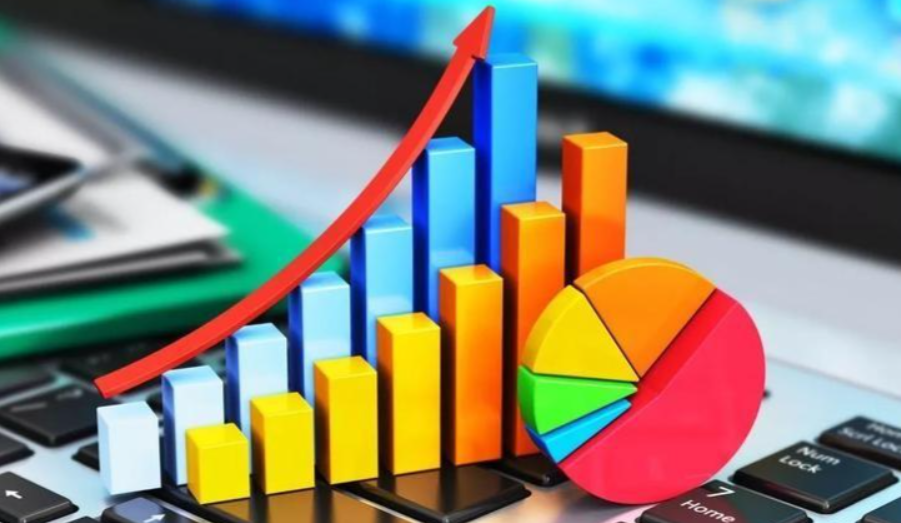Investing 300 Billion through ETFs
Advertisements
Since the beginning of 2023, the capital markets have exhibited a complex and intricate scenario. Overall, the market has been locked in a state of fluctuation, marked by significant volatility and a notable increase in uncertainty. This backdrop has, however, seen a substantial influx of funds into exchange-traded funds (ETFs), defying the typical market behaviors often observed during downturns. This peculiar "buying the dip" trend not only challenges traditional investment logic but also suggests that investors are making unique judgments about future market prospects and recalibrating their investment strategies accordingly.
Insights provided by the Galaxy Securities Fund Research Center reveal a critical perspective on this trend. As of August 15, the net inflow into equity ETFs for the year has already surpassed 300 billion yuan—a remarkable number that is quite rare in recent market contexts. A closer examination of the data shows that during the months of May, June, and July, net inflows were 74.6 billion yuan, 55.4 billion yuan, and 61.4 billion yuan respectively, all ranked among the highest historical levels. This indicates that during this turbulent period, investor interest and funding directed toward equity ETFs have continued to rise, reflecting a recognition of long-term market value and a rational approach towards temporary fluctuations.

The recent downward adjustments in the market have further highlighted these trends, showing an accelerating tendency for funds to secure positions via ETFs. Data from Galaxy Securities indicates that from the beginning of August, the drive towards purchasing equity ETFs gained momentum, with net subscriptions across the market exceeding 50 billion shares, resulting in a total net inflow of approximately 79 billion yuan. This figure eclipses previous single-month inflow records, marking an all-time high.
Looking at daily fund inflows, 2023 has witnessed ten trading days in which equity ETFs garnered over 10 billion yuan, with two of those days occurring in August alone. For instance, on August 8, the net inflow into stock ETFs hit 9.9 billion yuan, coming perilously close to the 10 billion mark, making it the third largest influx of the month.
Examining the flow of funds more closely, broad-based ETFs have emerged as a focal point for accumulation in 2023. According to Wind data, the CSI 300, STAR 50, and ChiNext indices rank as the top three "capital absorbent" indices for the year, with net inflow amounts of 50.5 billion yuan, 46.4 billion yuan, and 28 billion yuan respectively. The top ten ETFs by net inflow are managed by six different fund companies, with products from E fund occupying four spots, including those for the ChiNext ETF, STAR 50 ETF, and CSI 300 ETF.
This trend has only become more pronounced in August. As per Wind's data, since the start of the month, over 640 billion yuan has flowed into more than a hundred broad-based ETFs, constituting more than 80% of the total net inflow. Among the top ten ETFs by net inflow during this period, eight are broad-based ETFs.
The accelerated inflow into broad-based ETFs signifies an increasingly acknowledged value in equity market allocation among investors. Specifically, as of August 15, the rolling price-to-earnings (P/E) ratio of the CSI All Share Index stood at 16.5 times, placing it in the 19th percentile over the last three years, the 39th percentile over five years, and the 34th percentile over the past decade, indicating that the valuation levels have fallen below historical averages for a significant portion of time. This periodic market adjustment has led to a continued decline in overall index valuations, further enhancing the cost-effectiveness of allocations. Valuation serves as a key metric in assessing market investment worth; when market valuations reside at historically low levels, it suggests that stock prices might be undervalued relative to their intrinsic worth, offering potentially higher returns on investments. Investors, by analyzing these market valuations, are concluding the current equity market holds considerable allocative value, hence amplifying their investments in broad-based ETFs.
Market participants posit that the recent adjustments have been sufficiently extensive. With policymakers consistently releasing positive signals and macroeconomic regulatory measures being strengthened, there is an optimistic outlook for a recovery in investor sentiment, potentially prompting a resurgence in market risk appetite as we approach an eventual market low. From the lens of macroeconomic policy, the government’s intervention through fiscal and monetary policies aims to stabilize market expectations and stimulate economic growth. For instance, leveraging reduced interest rates and increased fiscal expenditures can catalyze economic stimulation, thus exerting a constructive influence on capital markets. As investors observe these favorable policy shifts, they are likely to recalibrate their pessimistic outlook and enhance their exposure to riskier assets, fostering a rebound in market risk appetite and attracting new capital flows into the market, which could help lift it out of its recent nadirs.